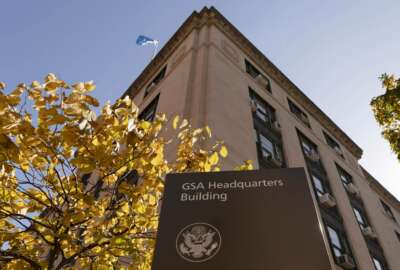- House Republicans renew calls to agencies to share more details about telework. Leaders on the Oversight and Accountability Committee said it's "deeply concerning" that agencies are either withholding information on telework numbers, or simply don’t have the information on hand in the first place. Republicans renewed their series of requests to individual agency heads, initially sent in May, that ask for data on telework, as well as current telework and remote work policies. The renewed push comes days after the White House told agencies to start “aggressively executing" return-to-office plans beginning in September.
- The Equal Employment Opportunity Commission is looking for feedback on its implementation of the Pregnant Workers Fairness Act. The new law, enacted at the end of 2022, requires agencies and other employers to provide reasonable accommodations for employees with limitations related to pregnancy and childbirth. EEOC began accepting charges under the law on June 27, the day it took effect. With the new proposal, EEOC is now further explaining how it plans to interpret the law, define certain terms and offer examples of reasonable accommodations. The proposed rule will remain open to public comments for 60 days after it's officially published on Aug.11.
- Veterans possibly exposed to toxic substances during their military service face a major deadline for compensation. The Department of Veterans Affairs is calling on veterans to file a claim under the PACT Act by Aug. 9, in order to have their benefits backdated to August 2022, when the legislation was signed into law. The PACT Act marks a major expansion of VA health care and benefits for veterans exposed to burn pits, Agent Orange, and other toxic substances. Under the PACT Act, veterans are automatically eligible for VA health care and benefits if they have one or more of 20 conditions linked to toxic exposures.
- An IRS watchdog said the agency isn’t making full use of pay incentives to recruit in-demand employees. The agency has more than a dozen pay incentives to recruit and retain employees with skills that are essential to its operations. But the Treasury Inspector General for Tax Administration finds the IRS only used these pay incentives to recruit, retain or relocate about 1,400 employees between fiscal 2019 and 2022. The agency made a total payout of $1.5 million through these incentives. The vast majority of these payments went to employees going back to the office at the height of the COVID-19 pandemic. TIGTA urges the IRS to make better use of these incentives, as it looks to rebuild its workforce and hire 5,000-10,000 employees each year.
- The Defense Department needs to do more to avoid recruiting criminals or political extremists. A report from the DoD inspector general reports the department fails to completely follow military guidance when screening applicants. The audit shows that, at times, DoD didn't perform applicant background checks or take their fingerprints. The IG's office recommends that the military departments instruct recruiters to complete all required steps for screening applicants for extremist or criminal gang associations. DoD should also implement periodic reviews of recruiter compliance with required screening procedures.
- For the first time in 13 years, the Army will build new privatized family housing. Nearly 75-family housing units and 60 two-bedroom apartments for unaccompanied service members will be built on 51-acres of federal land that was recently transferred to the Army from the Federal Aviation Administration. It is located near the Southern Command headquarter in Doral, Florida. Lendlease, a privatized housing company, will construct the new facilities. Cadence Communities will manage the housing and also has the contract to renovate existing Army housing at four other installations.
- Airport screeners at the Transportation Security Administration just got a big pay raise, and now their union is looking to take another step forward. TSA and the American Federal for Government Employees are in the early days of negotiating an expanded collective bargaining agreement. TSA Administrator David Pekoske said he wants the agreement done as quickly as possible. “So far, very positive, we’ve made a lot of progress. I’m hoping in the not too distant future we’re able to sign something,” Pekoske said late last month at a press conference to announce TSA’s new pay raises. Airport screeners have had limited collective bargaining since 2011, but the forthcoming agreement will cover more topics, in line with other union contracts across the federal government.
- Federal officials are working with critical sectors across the country to help defend their systems from cyber attacks. The Cybersecurity and Infrastructure Security Agency said it will develop voluntary, sector-specific cybersecurity plans for each of the 16 critical infrastructure sectors. CISA is kicking things off with four sectors in energy, financial services, information technology, and chemicals. And the agency is also working closely with water and wastewater systems; healthcare organizations; and K-12 schools on basic cyber defense measures.
- Five years in the making, the Defense Information Systems Agency takes over a key cyber program from the National Security Agency. The Defense Information System Agency is finally running the Sharkseer cybersecurity program, more than five years after lawmakers called for it. DISA said as of June 30 it assumed responsibility for the program's operations and management from NSA. NSA created the cyber program in 2015. Congress called DISA to take over Sharkseer in the 2019 defense authorization act. Sharkseer is a system of commercial, government and open-source systems that actively detects, alerts and blocks malicious, suspected or atypical network traffic through automated and analyst-driven blocking mechanisms. DISA said it will expand Sharkseer, adding multifactor authentication, transitioning to a zero-trust model and utilizing more cloud-based security solutions in the coming years.
- The Agriculture Department and the National Park Service jumped into co-working space in one of the most expensive cities in the country and saved big money. USDA and NPS worked with the General Services Administration to take advantage of the shared office space in San Francisco and saved hundreds of thousands of dollars over the last few months. GSA said the co-working space provided a bridge from an expiring lease of 35 thousand square feet to a significantly reduced federally owned location of just over 5,100 square feet. The co-working space is part of GSA's Workplace Innovation Lab pilot.
Copyright
© 2024 Federal News Network. All rights reserved. This website is not intended for users located within the European Economic Area.





